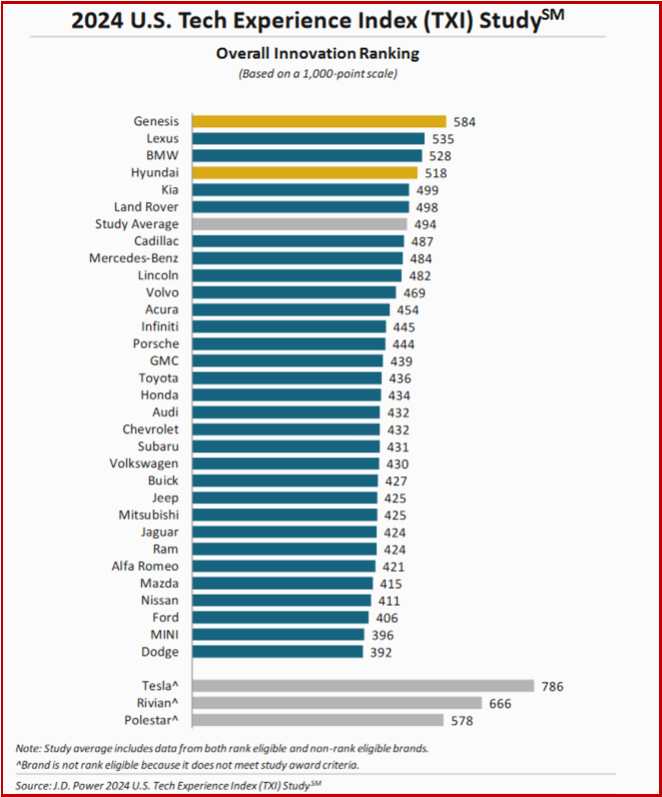Vehicle owners are overwhelmed with technology features that don’t solve a problem, don’t work, are difficult to use or are just too limited in functionality. The results of the J.D. Power 2024 U.S. Tech Experience Index* (TXI) StudySM released today shows that. The study, which focuses on the user experience with advanced vehicle technologies as they come to market, finds that while owners offer praise for some advanced features, others are found to be lackluster.
“A strong advanced tech strategy is crucial for all vehicle manufacturers, and many innovative technologies are answering customer needs,” said Kathleen Rizk, senior director of user experience benchmarking and technology at J.D. Power. “At the same time, this year’s study makes it clear that owners find some technologies of little use and/or are continually annoying. J.D. Power’s ability to calculate the return on investment for individual technologies is a major step in enabling carmakers to determine the technologies that deserve the most attention while helping them ease escalating costs for new vehicles.”
As an example, Power notes that new Artificial Intelligence (AI)-based technologies, such as smart climate control, have quickly won popularity with those owners who have used it. However, recognition technologies such as facial recognition, fingerprint reader and interior gesture controls “fall out of favor as they unsuccessfully try to solve a problem that owners didn’t know they had. For example, not only do owners say that interior gesture controls can be problematic (43.4 problems per 100 vehicles), but 21% of these owners also say this technology lacks functionality, according to newly added diagnostic questions in this year’s study.”
J.D. Power has developed a return on investment (ROI) analysis as part of the TXI findings to use advanced data science to cluster individual technologies into three categories. The categorization of technologies:
1. Must Have.
2. Nice To Have.
3. Not necessary.
Power says these provide automakers who buy Power services “the ability to better align their contenting strategy with customer expectations.”


